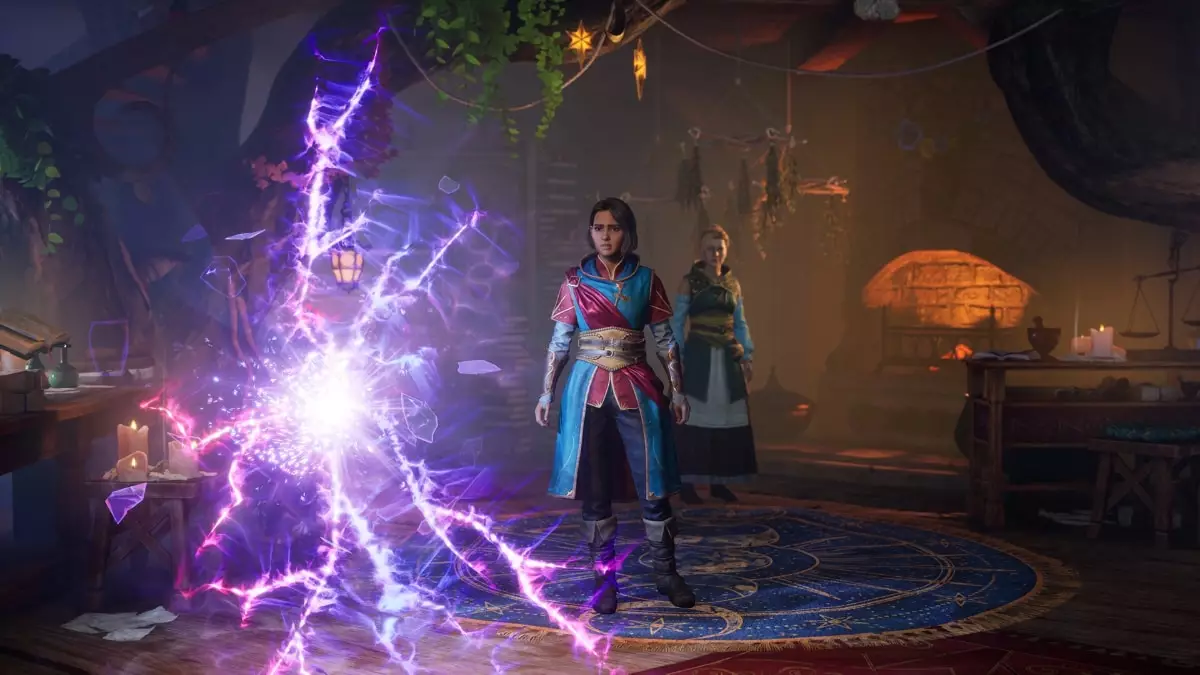The gaming landscape is ever-evolving, with each console generation bringing forth technologies and features that redefine how players interact with video games. In the latest development, Electronic Arts has revealed that “Split Fiction,” a highly anticipated title from Hazelight Studios, will feature a groundbreaking GameShare capability upon its launch on the Nintendo Switch 2. This feature, which allows players on the original Nintendo Switch to join in the fun with a player using the newer console, merits a critical examination of what it means for the future of gaming and player engagement.
Traditionally, the divide between console generations has meant that players activate their loyalty towards their preferred systems, often isolating them from friends who may still be using older hardware. The GameShare feature aims to bridge that gap, allowing cooperative gameplay that can create shared experiences among players, regardless of their console models. However, does this bold move position Nintendo as a more inclusive platform or highlight its failure to support backward compatibility adequately?
The Complexity Behind GameShare
Despite the excitement surrounding GameShare, there is a palpable tension lurking in the shadows of this announcement. EA’s blog post promises an enriching experience where Nintendo Switch 2 users can share their game with anyone using the original Switch, but there’s a subtle contradiction here. The notion of engaging users on two different hardware platforms while limiting the distribution of games that aren’t inherently designed for both systems reveals underlying complexities.
Nintendo’s own guidelines state that only games specifically optimized for the Switch can be shared between the two different systems. This raises concerns: will players truly have access to the same gaming experience, or will they find themselves hindered by hardware limitations? The stark disconnect between the capabilities of the Switch 2 and the original model raises questions about the equity of gameplay and potential frustration for consumers looking for seamless gaming experiences across generations.
Friend’s Pass and Cross-Play: A Co-op Dream or a Marketing Ploy?
In an era where cross-play has become increasingly prevalent, it is vital that developers not merely pay lip service to the concept. Although “Split Fiction” includes features like Friend’s Pass and cross-play across various platforms, one must critically assess the authenticity of their execution. Friend’s Pass allows one player to enjoy the game without the requirement of purchasing it if they are playing with someone who owns it. While this encourages cooperation and reduces barriers for entry, it also sparks skepticism.
Is this truly a player-friendly move or a mere tactic to boost sales? By allowing players to experience full cooperation through just one purchased game, EA positions itself as a champion of consumer rights; yet there remains an underlying question about how long they can sustain this model without alienating future buyers. The line between generous inclusivity and manipulative marketing is precarious, and one must stay vigilant to discern genuine progress from clever business strategies designed to maximize profits.
Nintendo’s Future in an Expanding Market
As the gaming industry continues to broaden its horizons, Nintendo must decide whether to cling to its traditional practices or adapt to the expectations of a more interconnected gaming community. The decision to feature a GameShare system suggests a positive shift towards considering player engagement more holistically, yet it also reveals the technological gaps that Nintendo has yet to bridge.
The company risks alienating loyal customers who have invested in its previous hardware by failing to provide backward compatibility that matches consumer expectations. The question remains: will this be a stepping stone towards greater innovations, or simply a temporary fix to appease an increasingly demanding market?
Nintendo’s legacy as a pioneer in the gaming world is at stake, and in a time when inclusivity reigns supreme, the balancing act between catering to nostalgia and embracing advancement is more crucial than ever. As players anticipate the launch of “Split Fiction” on June 5, they will undoubtedly be looking beyond the game’s mechanics. They will seek a deeper connection to the industry’s trajectory and judge whether this new chapter represents a genuine leap forward or merely a facade masking the insecurities of an aging brand.

